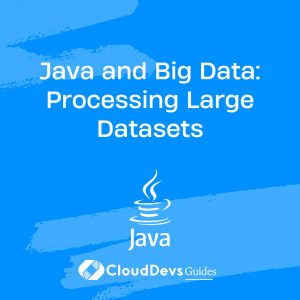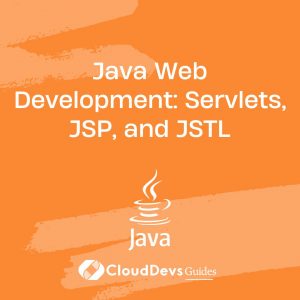Java and Big Data: Processing Large Datasets
In the realm of big data, where enormous volumes of information are generated every second, the ability to efficiently process large datasets is paramount. Java, known for its scalability, robustness, and versatility, emerges as a formidable contender in this landscape. In this article, we delve into how Java empowers developers to tackle the challenges posed by processing large datasets in the era of big data.
Why Java for Big Data?
Java’s popularity in big data processing stems from several factors:
1. Scalability
Java’s ability to scale seamlessly makes it well-suited for handling large datasets. Whether it’s distributed computing or parallel processing, Java’s robust architecture enables developers to design applications that can scale horizontally to accommodate growing data volumes.
2. Performance
With its efficient memory management and optimized runtime environment, Java delivers high performance even when dealing with massive datasets. The Just-In-Time (JIT) compilation further enhances execution speed, ensuring swift processing of data-intensive tasks.
3. Ecosystem Support
Java boasts a rich ecosystem of libraries and frameworks specifically tailored for big data processing. From Apache Hadoop for distributed storage and processing to Apache Spark for in-memory analytics, Java provides developers with a plethora of tools to tackle diverse big data challenges.
Processing Large Datasets with Java
Let’s explore how Java facilitates the processing of large datasets through real-world examples:
1. Apache Hadoop
Apache Hadoop, a cornerstone of the big data ecosystem, leverages Java for distributed storage and processing of large datasets. Developers can harness the power of Hadoop’s MapReduce framework, written in Java, to efficiently process data across clusters of commodity hardware.
External Link: Apache Hadoop
2. Apache Spark
Apache Spark, another prominent big data framework, offers a unified analytics engine for large-scale data processing. Built in Scala but with extensive support for Java, Spark enables developers to perform complex data transformations and analyses in-memory, significantly enhancing processing speed.
External Link: Apache Spark
3. Apache Flink
Apache Flink, known for its low-latency stream processing capabilities, is also Java-based. Flink empowers developers to process continuous streams of data in real-time, making it ideal for applications requiring immediate insights from large datasets.
External Link: Apache Flink
Conclusion
Java’s prowess in processing large datasets underscores its significance in the realm of big data. With its scalability, performance, and robust ecosystem support, Java continues to be a preferred choice for developers seeking to tackle the complexities of big data processing. By leveraging Java-based frameworks like Apache Hadoop, Spark, and Flink, organizations can unlock new possibilities in harnessing the power of large-scale data analytics.
As the volume and complexity of data continue to grow, Java remains a steadfast ally in the quest to extract actionable insights from the vast sea of information. Java’s flexibility, scalability, and ecosystem support make it an indispensable tool for processing large datasets in the era of big data. With the right tools and expertise, developers can harness the power of Java to unlock valuable insights and drive innovation in an increasingly data-driven world.
For further reading and resources:
Table of Contents









